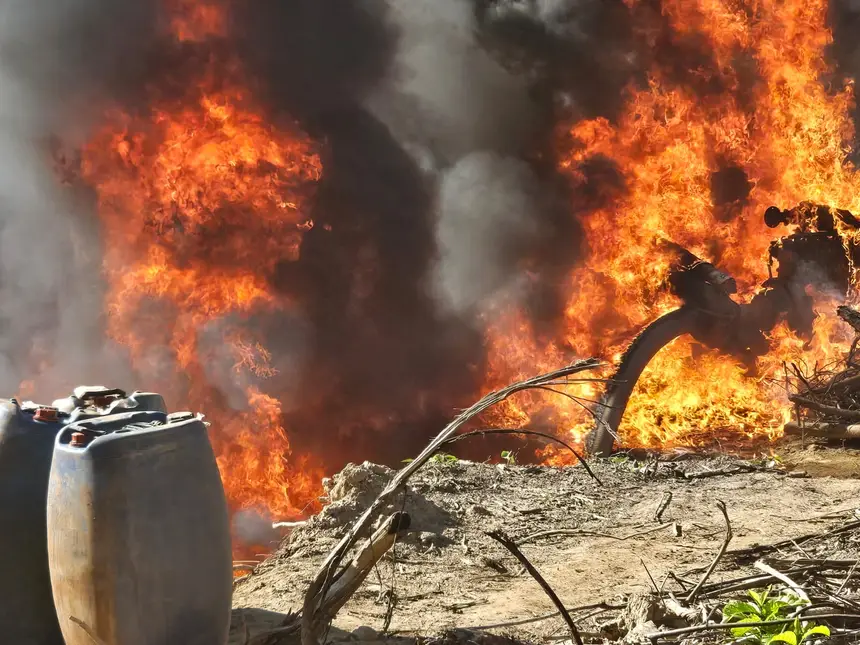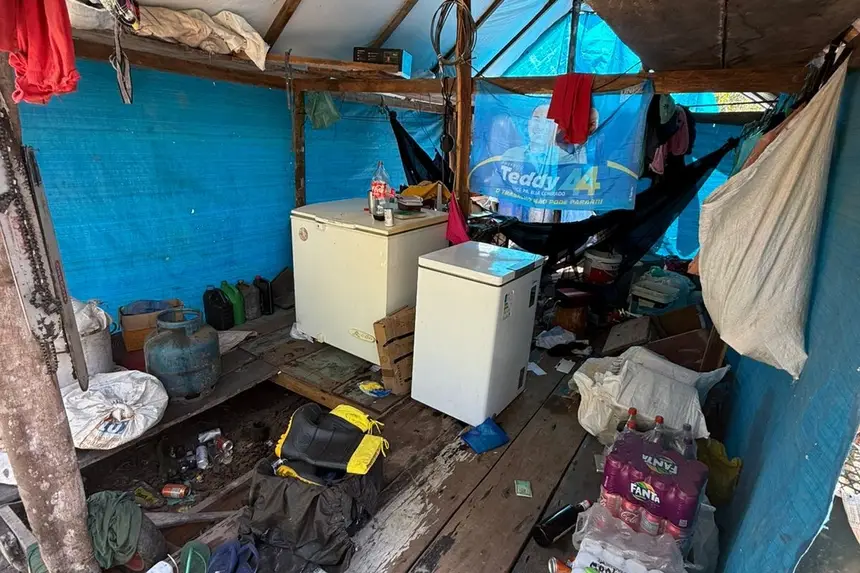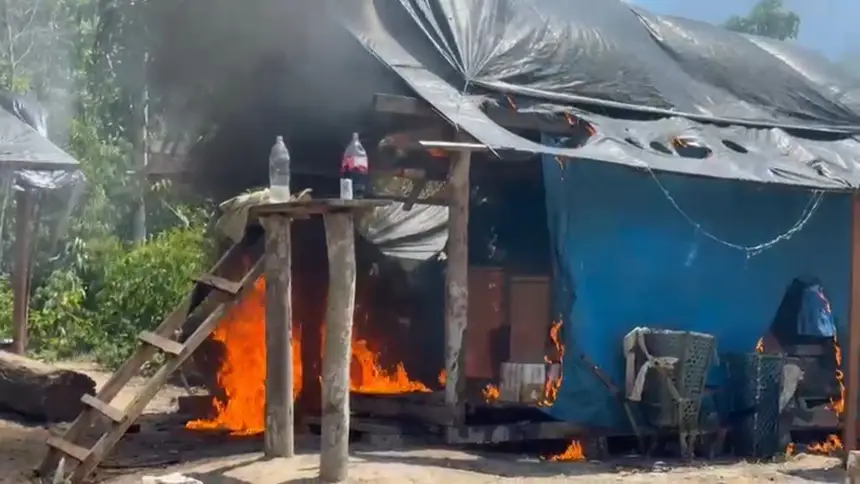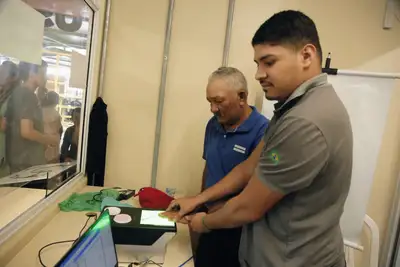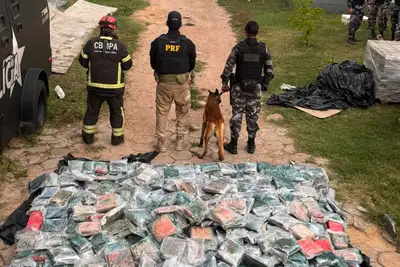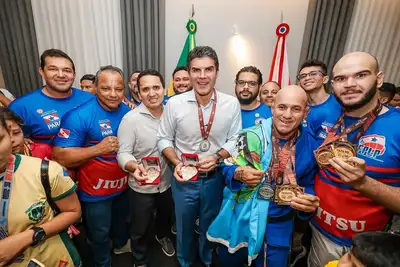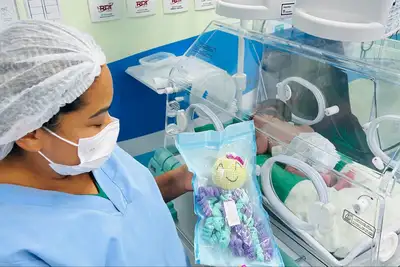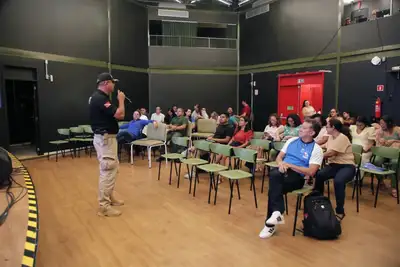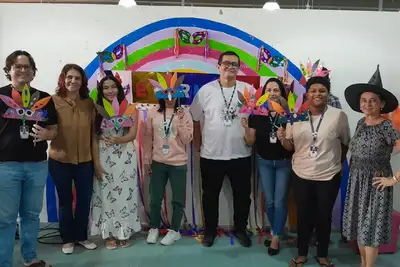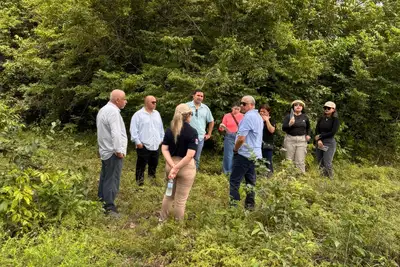Civil Police conducts operation against illegal mining in Almeirim, Lower Amazon
Police activities focus on dismantling illegal mining operations in the Monte Dourado District, within the Jari Ecological Station, a federal conservation unit.
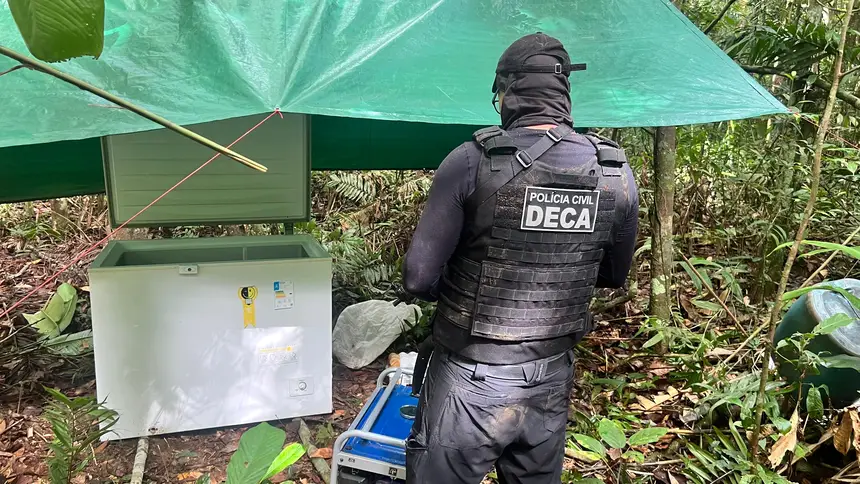
From October 19 to 23, the Civil Police initiated the second phase of the "Blood Gold Operation." The action aims to dismantle illegal mining operations located in the Monte Dourado District, in the municipality of Almeirim, within the Jari Ecological Station, a federal conservation unit.
The activities involve the Specialized Delegacy for Agrarian Conflicts (DECA) of Santarém, under the supervision of the Regional Superintendence of Lower and Middle Amazon, with technical and tactical support from the Intelligence Support Center of Lower and Middle Amazon (NAI/Lower and Middle Amazon), and the Delegacies of Monte Dourado and Prainha.
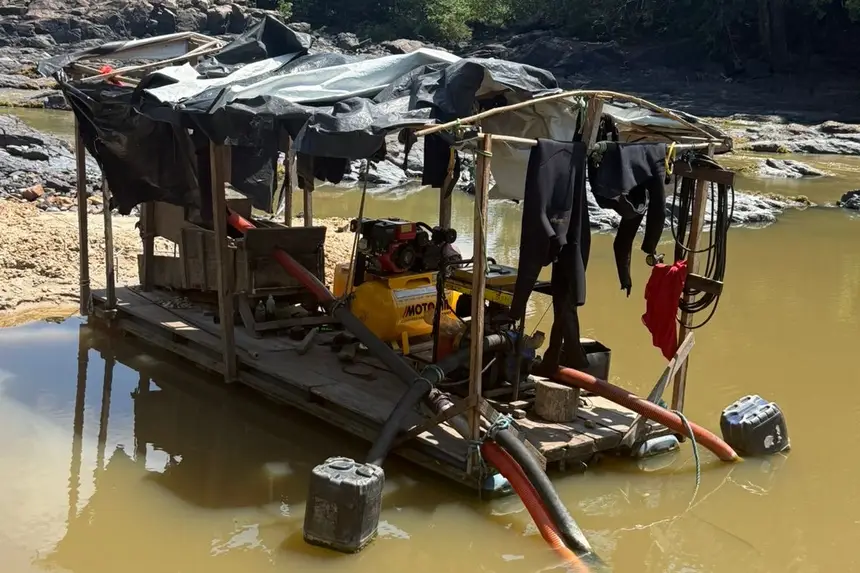
The action integrates efforts with the Public Security Air Group (Grasesp), linked to the Secretary of Public Security and Social Defense (Segup), and the Scientific Police of Pará (PCEPA) with the aim of combating environmental crimes and the violence associated with clandestine gold exploitation in a coordinated manner.
According to Jamil Casseb, superintendent of Lower and Middle Amazon, the second phase of the operation began after investigations into the deaths of eight people at an illegal mine in the Jari Valley, on the border between the State of Amapá and the municipality of Almeirim, in August of this year.
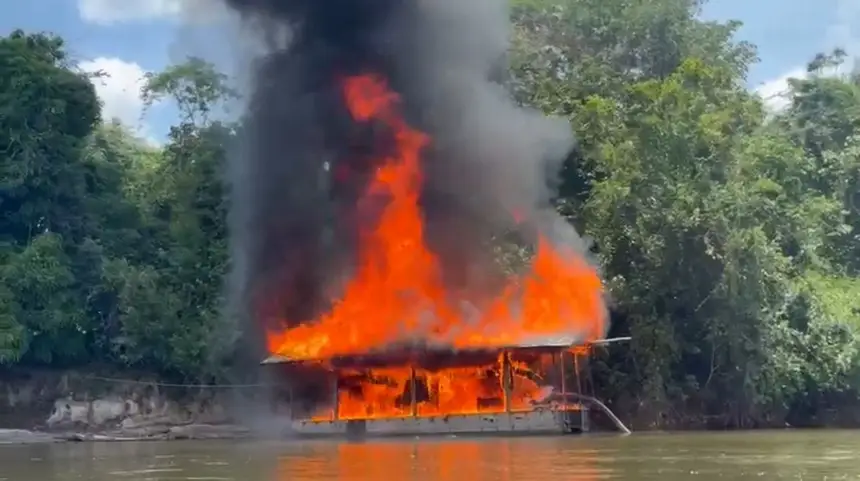
In addition to curbing violent crimes, the action is also an important milestone in combating environmental offenses in Pará. "We found significant degradation in environmental issues, with several devastated areas and our rivers being poisoned by harmful substances used in this type of illegal exploitation. We will not be complicit in this type of situation. The State, through public security forces, will always combat this type of situation. From now on, we will continue to be present in new phases of the Operation and new police operations to curb this type of crime," emphasized Casseb.
The investigations identified complex structures for illegal extraction, known as the "Mamão" and "Porto Inajá" mines. These structures operated with clandestine airstrips, dredges, and excavators, causing extensive environmental degradation, river contamination by mercury, and destruction of primary forest. The criminal activity is linked to relatives of a man, who is in prison, identified as the mastermind of the massacre.
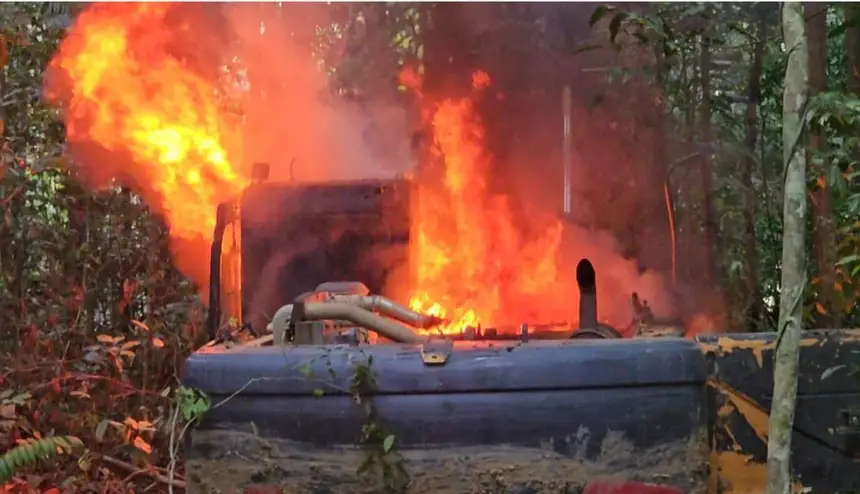
According to Gilvan Almeida, head of the Agrarian Conflicts Delegacy (Deca) of Santarém, the result of the operation is the result of collective work. "The delegate of Monte Dourado requested support from the Superintendence and conducted a survey of the area, along with our Intelligence Support Center in August, where the mines were noted."
"With this information, the Agrarian Conflicts Delegacy, which was also part of Operation Curupira, triggered the second phase of the Operation during this period where we, with the support of Graesp and the Scientific Police of Pará, carried out a direct action in the area," explained the delegate.
Gilvan Almeida informed that the action taken will also support new phases of the operation and share the survey conducted with other competent bodies for the necessary legal measures, as the area is an ecological reserve.
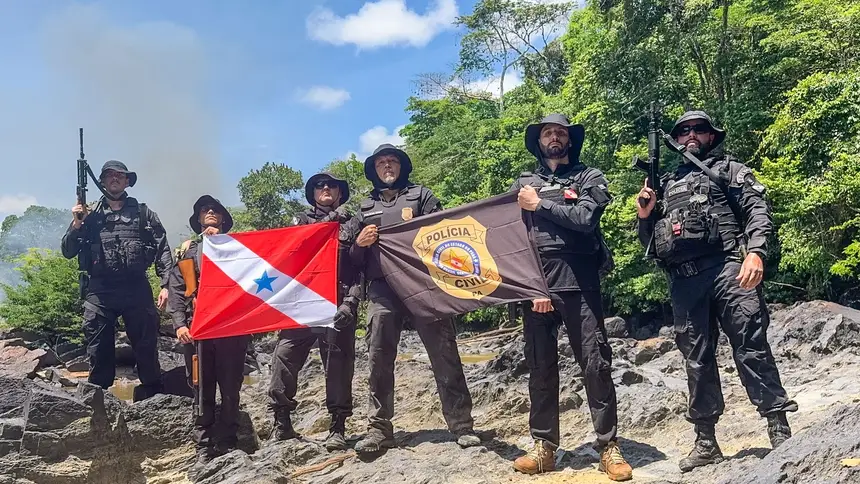
During the new phase of the operation, security forces conducted field incursions with air support, aiming to disable machinery, destroy camps and logistical support structures of illegal mines, as well as collect evidence for criminal and administrative accountability of those involved. The operation also seized firearms and ammunition of various calibers.
The operation also plans to remove miners from the area, as well as identify and permanently close clandestine airstrips in a next phase, restoring state control over the region. The Civil Police emphasizes that the "Blood Gold Operation" represents an integrated and strategic action to confront illegal mining and violence in the interior of the Amazon, reaffirming the commitment to environmental preservation, protection of life, and combating organized crime.
*Text by Jacqueline Costa, intern, under the supervision of Esther Pinheiro / Ascom PC


